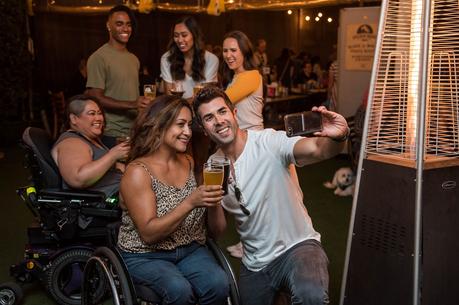It is not uncommon to feel a little insecure about talking or interacting with someone with a physical or mental disability. Socializing with people with disabilities should not be different from any other socialization. However, if you are unfamiliar with a given disability, you may be afraid that you will either say something offensive or make a mistake by providing help. You can probably even help them lead a better life.

Photo: Unsplash
Speak Respectfully and Encourage Others to Also
Respect, above all. Someone with a disability should have the same respect as anyone else. See others as people and not with problems. Focus on the person and their individual personality. If you have to put a label on the disability, it is better to ask which terminology they prefer and follow the terms they choose. In general, you should follow the “golden rule”: treat others as they would like to be treated.
While some people find it unpleasant the words “disabled”, others use them to describe themselves because they feel that they have been removed from life as “bad words” and that their disability is part of who they are. If they are referred to as “disabled”, ask if they are comfortable describing themselves this way or why they choose to describe themselves that way, it will help you get a picture of their perspective.
Labels and derogatory names are inappropriate and should be avoided when talking to someone with a disability. Assigning a label that is offensive (such as disabled or handicapped) is not helpful and indicates disrespect. Always pay attention to how you speak, censor your language if necessary. Be careful not to identify someone with a disability instead of their name or role.
Offer Real Help
Offer real help . Some people are reluctant to offer, to help someone with a disability for fear of being offended. Indeed, if you offer help because someone with a disability cannot do anything, your offer may be offensive. However, very few people will be affected by a real, specific offer of help.
Many people with disabilities are reluctant to ask for help, but may be grateful for an offer.
For example, if you go shopping with a friend who uses a wheelchair, you might ask if he needs help carrying his bags or help with his wheelchair. Offering to help a friend is not usually offensive. If you are unsure of a particular way to help, you can ask, “Is there anything I can do to help you?” You may want to politely mention that you are aware of new products that may assist. Perhaps you have seen an incredible power wheelchairand want to share it with them.
Recognize that some disabilities are not visible. If you see someone who seems to have a disability and you do not know what disability he has, do not face it and accuse him of not having a disability. They may have a disability that you may not see. Sometimes so-called “invisible disabilities” that cannot be seen immediately and many vary. Invisible illness is the main reason why kindness and understanding goes such a long way and together we can make a better world.
Thank you for reading!


